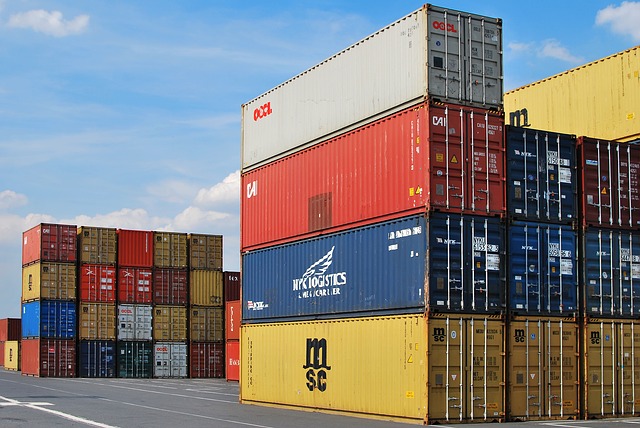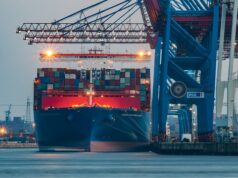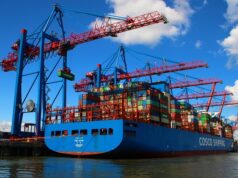The World Trade Organization (WTO) in a new report is warning of possible increases to trade costs due to responses, policies, and measures addressing the COVID-19 crisis.
Pandemic-related measures such as travel restrictions and border closures are causing disruptions to freight transport, and could increase travel and transport costs, which account for as much as a third of trade costs, the WTO said in the report released August 13.
Travel restrictions have hit air transport particularly hard because they have led to a reduction in passenger flights, which account for around half of air cargo volume. Consequently, there has been a steep decline in air cargo capacity and a spike in air freight rates.
Annually, global air cargo capacity shrank by 24.6% in March 2020, and air cargo yields in April 2020 were almost twice as high as in April 2019. While some airlines started flying passenger aircraft without passengers just to carry cargo, “it was only the historically high prices that induced them to do so,” said the report.
“The disruption to air cargo transport has had important consequences for producers of perishable goods, medical supplies and suppliers of parts and components, and it may further exacerbate the hit to complex manufacturing supply chains, which often rely on just-in-time fast delivery of their inputs,” it continued.
In the maritime freight transport industry, ocean carriers have decreased their supply of sailings to prevent lower demand from depressing shipping rates. As a result, the rebooting of the Chinese economy started pushing freight prices up in mid-March and the rebound of US consumer demand caused a surge in shipping rates in May.
Moreover, trade policy barriers and regulatory differences account for at least 10% of trade costs in all sectors. Products essential in the fight against the pandemic have seen the introduction of mostly temporary export-restrictive measures, which have raised trade costs.
High levels of uncertainty also magnify the impact of trade costs on international trade. In the first quarter of 2020, for instance, a widely used measure for the global level of uncertainty was 60% higher than the levels triggered by the Iraq War and the Severe Acute Respiratory Syndrome (SARS) outbreak in 2003.
“Uncertainty reduces the appetite of firms to invest into new trading relationships, and the increase in uncertainty may also result in trade finance contraction that is likely to take a particularly heavy toll on emerging and developing economies,” said WTO.
Looking ahead, the report noted that many governments have implemented measures to mitigate pandemic-related disruptions to economic activity. While many of the changes in trade costs can be expected to revert once the pandemic is brought under control, some effects may persist.
For example, aviation industry consolidation and shifts in passenger appetite for air travel could lead to higher air transport costs. In addition, government policy choices—which could either reduce or increase trade policy uncertainty—will be important in shaping uncertainty-related trade costs in the future.
Image by Jarosław Bialik from Pixabay









